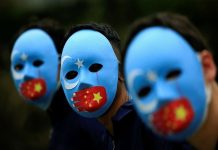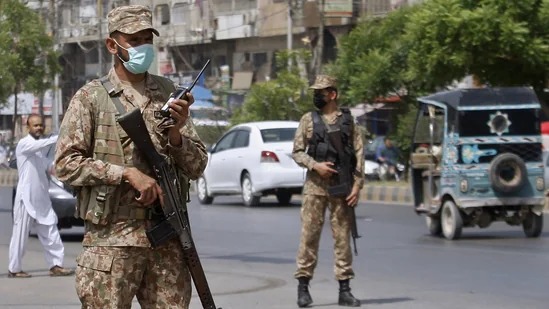Will Biden call Shehbaz Sharif? Americans cannot afford to ignore Pakistan given its geo-strategic position; however, they can ignore the fact that the people’s mandate matters for stability. The world can see that the Pakistan army has over-extended itself into the domestic fora and world can see how it tried to rig and did so very badly the elections. To discuss all this, Najma Minhas, Editor GVS sits in with Dr. Claude Rakisits, a Visiting Fellow at the Centre for Security, Diplomacy and Strategy (CSDS) who has more than 40 years of experience working on Pakistan.
Dr. Claude Rakisits is currently a Visiting Fellow at the Centre for Security, Diplomacy and Strategy (CSDS). He has been working on Pakistan for last 40 years. He has written extensively on Pakistani Politics, Pak-US relationship and role of Pakistan in the region. He is an Honorary Associate Professor in the Department of International Relations at the Australian National University. Prior to this, Dr Claude Rakisits worked in the Australian public sector in the areas of defence, strategy, foreign affairs, and intelligence. He tweets @ClaudeRakisits.
Najma Minhas is Managing Editor, Global Village Space. She has worked with National Economic Research Associates (NERA) in New York, Lehman Brothers in London and Standard Chartered Bank in Pakistan. Before launching GVS, she worked as a consultant with World Bank, and USAID. Najma studied Economics at London School of Economics and International Relations at Columbia University, NewYork. She tweets at @MinhasNajma.
A Brief Snapshot of the Interview is given below. To watch full interview, Please visit GVS Dialogue.
Before we delve into elections and their perception in the West, I’m curious about your 40 years of engagement with this region. What initially drew you to it?
Dr. Claude Rakisits: Well, thank you for having me. Over 40 years ago, while pursuing my master’s in Ottawa, I chose to study Pakistan for a course on fiscal development. My interest stemmed from curiosity about a Muslim-majority country, having lived in the Middle East during my youth. The ethnic diversity, strong military, and religious dynamics of Pakistan intrigued me.
Fascinating journey. How has Pakistan evolved over these four decades?
Dr. Claude Rakisits: Frankly, Pakistan hasn’t fared well due to governance issues. Bad governance leads to poor policies, hindering progress. Corruption and excessive military influence exacerbate the situation, diverting resources from essential sectors. Unfortunately, the recent elections worsened matters.
Speaking of elections, how do these differ from previous ones?
Dr. Claude Rakisits: While past elections faced manipulation, this one’s particularly egregious amidst the social media era. The pre-election scenario was already skewed against PTI, followed by blatant tampering on voting day. Social media amplifies public scrutiny, challenging authorities. This time, rigging was undeniable.
Will such rigging go unnoticed by the West?
Dr. Claude Rakisits: Foreign governments may reluctantly accept the outcome, knowing Pakistan’s geopolitical significance. However, instability resulting from questionable elections concerns them. Regardless of preferences, they seek stability to curb terrorism and maintain regional peace.
How about IMF’s stance amid these circumstances?
Dr. Claude Rakisits: IMF’s decisions aren’t solely dictated by American interests. Pakistan’s stability matters, as its collapse benefits no one. While relationships evolve with changing administrations, underlying strategic ties endure.
What role does democracy play in shaping these ties?
Dr. Claude Rakisits: Stability matters more than democracy to external actors. However, internal stability achieved through genuine democratic processes is preferable. Stability achieved through repression breeds fragility, as seen historically.
Regarding military rule, is it a boon or bane for Pakistan?
Dr. Claude Rakisits: Military regimes may bring economic stability, but at the cost of repression. Positive stability emanates from inclusive governance, which military rule often lacks. Moreover, international partnerships weigh on military’s conduct.
Looking ahead, what path do you envision for Pakistan?
Dr. Claude Rakisits: Pakistan faces a crucial juncture. Continuing with the status quo risks instability amid economic woes. People’s discontent may escalate, necessitating changes. Transitioning to a more inclusive governance model could avert a crisis.
Home Featured Stories Why Western Analysts are Losing Respect for Pakistan Army Establishment After Rigged...

































